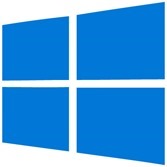It’s an age old battle with vocal combatants on either side: which is the superior operating system? One the one side is the classic and orthodox Windows OS, the posterchild of Microsoft which has been around officially since 1985. It’s stacked up against indie legend Linux, the underdog that favors and champions free and open-source software, and has done so since 1991. While they aren’t the only operating systems out there, they’re two of the biggest. They’re both undoubtedly revered by their respective users, but which one is best?
Let’s talk distros
When it comes to picking a Windows operating system, your choices are very straight forward. Generally you would go for the latest version – at the time of writing this article that would be Windows 10. If you need to (or just prefer it), however, you can pick up earlier copies of Windows such as 7 or 8. With Linux it’s a bit trickier. Since the OS is open source it means that anyone using it can customize it to suit them specifically. As a result there are numerous different Linux operating systems called distributions, or distros. These distros vary wildly in all facets and are constantly changing. This overwhelming first step when choosing an operating system might be a deterrent to a lot of users, but at the same time, you’re free to choose and use as many distros until you find the right one since Linux is absolutely free to use.
Software availability and compatibility
When it comes to software, most of it is written for windows. Linux-compatible versions do exist but only for the most popular software out there. Generally, however, an open source alternative almost always exists, Linux users just have to choose carefully as these are often inferior or less effective than their Windows counterparts. Designing and hosting websites falls into the same boat. Thankfully, due to the popularity of both operating systems, some companies offer web hosting for both Windows and Linux, meaning you don’t have to worry about software adaptations. But if you absolutely must have certain Windows programs while using Linux then it’s possible to use programs such as WINE to host it.
Security
In a post-Snowden era, data security is one of the biggest concerns for computer users everywhere. In this regard Linux flourishes as one of the most secure operating systems available. Unlike Windows, Linux does not grant users full administrator – or root – access. Linux accounts are usually low-level with very few privileges into the greater Linux system. This means if a virus does get loose, it can be contained very quickly since it can usually go no farther than the individual infected machine. The biggest security guarantee, however, has to do with the coding of the malware. Since the since the bulk of software available is written for Windows, a lot of malware is written to target these files. And if the virus is written for Windows, it won’t be able to target other operating systems. For instance, a virus that looks for your C:\Windows\System32 folder on Windows won’t be able to find it on Linux, because it simply doesn’t exist.
So which is it?
It’s tough to say. Both operating systems have their merits and faults. Many will prefer the familiarity and ease-of-use of Windows, while some will definitely prefer the customizable nature and security of Linux. At the end of the day it ultimately comes down the user and which OS is more suitable their individual needs.


